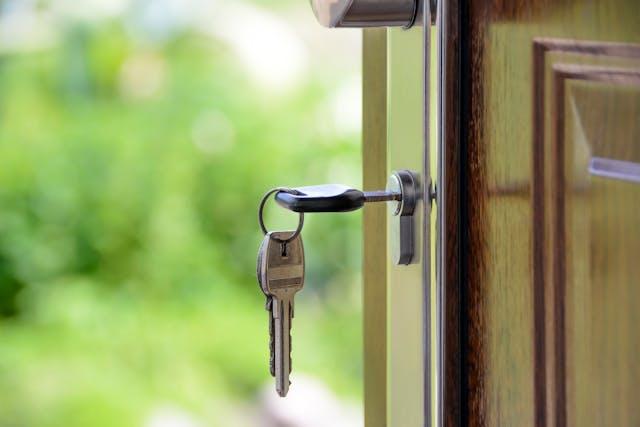Have you recently purchased your first home? Planning to buy a new residence soon? In either case, you’ll likely need to pay a municipal tax: the welcome tax. But did you know that, under certain conditions, it may be possible to avoid paying this tax?
When is the welcome tax payable? How is it calculated? And more importantly, in which situations can an exemption or refund be granted? Discover all the essential details below.
Transfer duties or welcome tax?
The welcome tax, also known as property transfer duties, is a sum of money that every property buyer must pay to the municipality when purchasing a building or land within its jurisdiction. This tax applies in all municipalities across Quebec. All municipalities in the province are required to collect a transfer duty whenever a real estate property changes ownership. This requirement is established under the Act respecting municipal taxation in Quebec.
The welcome tax must be paid in a single instalment, within 30 days of the invoice being sent to the new owner. If multiple individuals jointly acquire the property, they are jointly responsible for paying this tax.
Who has to pay the welcome tax when buying a home?
The welcome tax must be paid by the new owner, meaning the person who buys or receives the property being transferred. The person who sells or transfers the property does not have to pay any amount in this regard.

How is the welcome tax calculated in Quebec?
The amount to be paid is calculated based on the taxable base, which corresponds to the higher of the following two amounts:
-
the market value, that is, the price indicated in the deed of sale or the transfer agreement
-
the municipal assessment value
Once the taxable base is established, the tax rate is applied. Here are the applicable tax brackets for 2025:
-
0.5% on the first $61,500
-
1% on the portion exceeding $61,500 but not exceeding $307,800
-
1.5% on the portion exceeding $307,800
Note that the tax rates are different in the cities of Montreal and Quebec City.
In Montreal, the 2025 tax rates are as follows:
-
0.5% on the first $61,500
-
1% on the portion exceeding $61,500 but not exceeding $307,800
-
1.5% on the portion exceeding $307,800 but not exceeding $552,300
-
2% on the portion exceeding $552,300 but not exceeding $1,104,700
-
2.5% on the portion exceeding $1,104,700 but not exceeding $2,136,500
-
3.5% on the portion exceeding $2,136,500 but not exceeding $3,113,000
-
4% on the portion exceeding $3,113,000
In Quebec City, the welcome tax is calculated using the following rates:
-
0.5% on the first $61,500
-
1% on the portion exceeding $61,500 but not exceeding $307,800
-
1.5% on the portion exceeding $307,800 but not exceeding $500,000
-
2% on the portion exceeding $500,000 but not exceeding $1,000,000
-
2.5% on the portion exceeding $1,000,000 but not exceeding $2,000,000
-
3% on the portion exceeding $2,000,000
What are the exemption cases?
The payment of transfer duties is mandatory for all real estate transactions within a municipality. However, certain specific circumstances allow a buyer to be exempt from paying the welcome tax. This is referred to as an exemption.
When one of these particular situations arises, the notary preparing the deed of transfer must include a mention of it in the contract. If needed, the city may request additional documents to verify the legitimacy of the exemption request.
Here are the situations in which a buyer may be exempt from paying transfer duties.

1. Direct-line transfers between family members
A buyer may be exempt from the welcome tax when the transfer of a property meets the following conditions:
-
it occurs between members of the same family;
-
it follows a direct ascending or descending line, meaning:
-
from a child to a parent or grandparent
-
from a parent to a child or grandchild
-
For example, if a grandfather gives his house to his granddaughter, no transfer duties apply. The same exemption would apply to a mother buying back her son’s house.
What about transfers between siblings?
Despite their family connection, a transfer of property or land between siblings does not qualify for a tax exemption, as it is not considered a direct-line transfer. Instead, it is referred to as a collateral-line transfer.
What happens, then, if a brother becomes co-owner with his sister following an inheritance, for example, and wants to become the sole owner? In this case, when he buys out her share, he must pay transfer duties on the half of the property previously owned by his sister. He does not have to pay tax on the share he already owned.
2. Transfers between spouses
The transfer of a home between spouses is another common situation that can lead to an exemption from the welcome tax. This often occurs at the time of separation, when one partner buys out the other’s share to retain the family residence. The exemption may apply to both married or civilly united spouses and common-law partners. However, certain conditions must be met:
For common-law partners:
-
They must have lived together for more than 12 months prior to the transfer
-
The transfer of ownership must occur within 12 months of the separation
For married spouses, the transfer must take place before the official divorce date. Otherwise, the welcome tax will apply. Some municipalities allow the exemption if the transfer occurs within 30 days of the divorce judgment.

3. Transfer with a value under $5,000
The law provides for an exemption from transfer duties when the taxable base of the transferred property is less than $5,000.
In such cases, it is rarely an entire building that changes ownership, since it is unlikely to own real estate worth less than that amount. A more realistic example would be a portion of land transferred in the case of an encroachment.
4. Transfer between a legal entity and an individual
Another situation that may lead to a welcome tax exemption involves a transfer between an individual and a company owned by that same person. To qualify for the exemption, the person must hold more than 90% of the company’s shares and voting rights. However, this type of exemption is less common than the previous ones.
Beyond exemptions: can you get a refund or still be charged fees?
In addition to being exempt from paying the welcome tax in certain situations, some buyers may also be eligible for a refund of the transfer duties under specific conditions. For example, if you are purchasing a property in Montreal, you may qualify for financial assistance through the city’s Home Purchase Assistance Program. It is advisable to consult the program details to determine your eligibility.
Even when a property transfer qualifies for a tax exemption, municipalities are permitted to charge a supplemental duty. This is a fixed fee of up to $200, intended to compensate for the administrative costs of updating the municipal assessment roll. You may therefore be required to pay this amount even if the welcome tax itself does not apply. To confirm, check with your municipality whether this regulation is currently in effect.
Would you like to be guided by a professional throughout your property purchase?
XpertSource.com can help you find a real estate broker. When you tell us about your project, we put you in touch with qualified resources for free. Simply fill out our form (it only takes a few minutes) and we will connect you with professionals.

